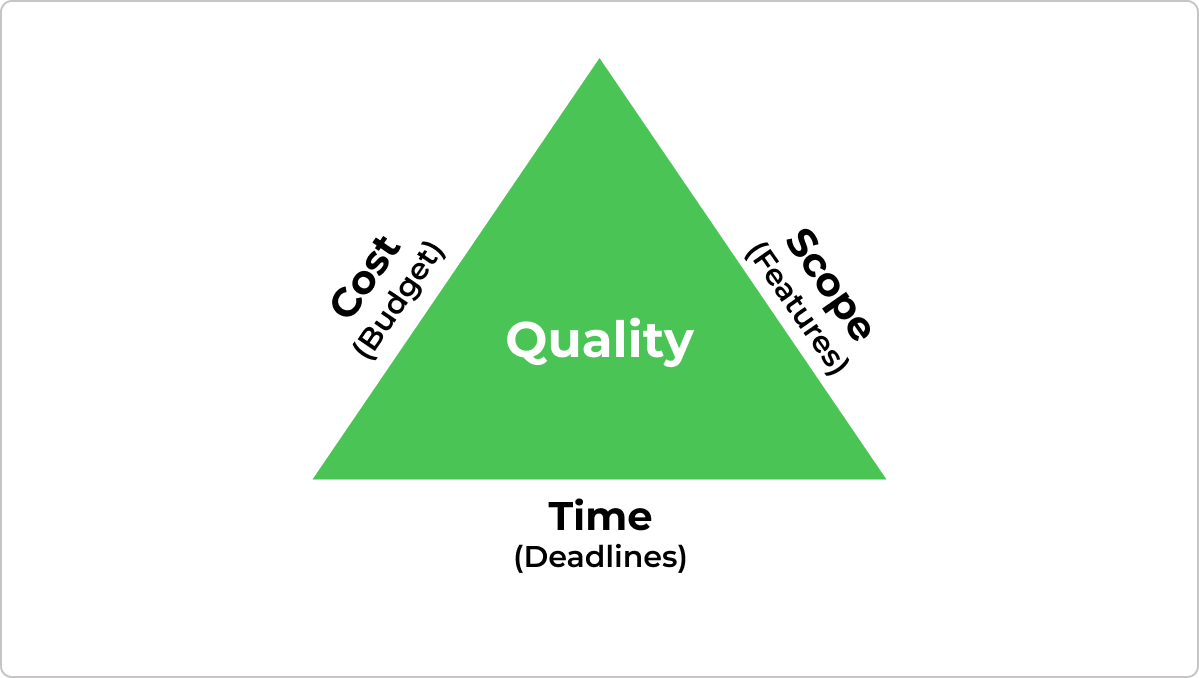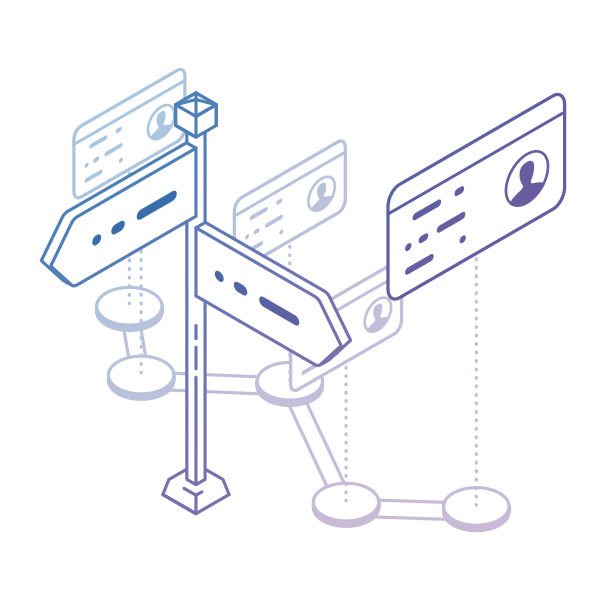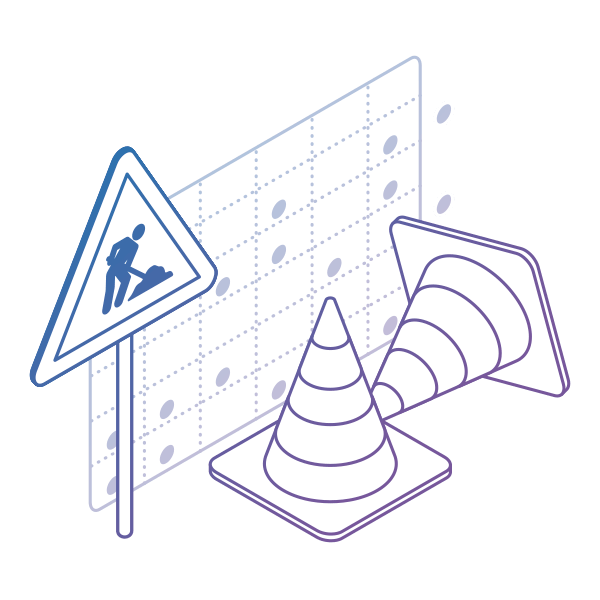When examining the product life cycle and the roles of product and project managers, a significant overlap in the responsibilities of the two functions becomes evident. But what sets them apart?
Although both roles demand strong leadership, problem-solving, and communication skills, they operate in distinct phases of the product lifecycle and fulfill separate, unique functions.
This article delves into the intricacies of product and project management, highlighting distinct responsibilities, areas of overlap, and the questions that typically guide product and project managers’ decisions.
Product Management vs. Project Management
When considering the realms of product management and project management, it's essential to understand that the roles and responsibilities can be very different in each domain.
Product managers are responsible for the "What" and "Why" behind a product. Their focus is strategic, looking towards market research, competitive analysis, and managing the ongoing usability of a product. Essentially, product managers are charged with making decisions on what new features to add and addressing customer feedback.
On the contrary, the project manager’s gaze is set on the "How" and "When" of getting things done. They are the tacticians orchestrating the actual delivery of a product or service. Their efforts lie in planning, executing, and leading cross-collaborating teams through the completion of projects. It's about managing the details to ensure that objectives are accomplished within constraints such as time, quality, and budget.

While navigating through these roles, remember the following key distinctions:
Product management: Involves a deep external as well as internal focus to align product offerings with market demands. The role endures beyond the launch, bearing the responsibility for nurturing products and enhancing customer equity over time.
Project management: Emphasizes internal concentration, streamlining processes to ensure efficient delivery of the product. Project managers are the drivers of the initiatives that enable the product vision to materialize.
Incorporating the big-picture approach is integral to product management while zeroing in on the efficient execution of each phase is pivotal to project management. It's about knowing the distinctive contribution to the lifecycle of a product. When you understand these nuances, the path to implementing projects and programs effectively becomes more evident.
| Product Management |
Project Management |
| Building a product roadmap that aligns with the company strategy |
Streamlining workflows to deliver consistent results |
| Understanding different customer personas |
Enabling effective cross-team communication and collaboration |
| Gathering feedback from customers, senior executives, and sales teams |
Exerting thought leadership and keeping team members focused on project goals |
| Planning product initiatives |
Support the product delivery team to fit within the project constraints |
| Collaborating with product teams |
Fostering a culture of curiosity and continuous learning |
How Does Product and Project Management Work in Sports?
Let's think of a sports team to illustrate the difference between product and project management roles.
Product management is like the role of a Head Coach in a sports team. The Head Coach is responsible for the overall strategy and long-term success of the team. They decide on the playing style, the training regime, and the development of players to ensure the team is competitive not just for one season but for many seasons to come. Their focus is on the team's continuous improvement, adapting to changes in the sport, scouting new talent, and making decisions that will benefit the team's future. They're less concerned with the intricacies of a single game and more focused on the team's overall direction and success over time.
Project management, on the other hand, is like the role of a Match Coordinator. This person is responsible for the planning and execution of individual games or matches. They ensure that everything is in place for the game day - scheduling, logistics, player availability, equipment, and game-specific strategies. They deal with the here and now, ensuring that all the elements are correctly coordinated and executed to achieve a successful outcome in each match.
Overall, the Head Coach sets the vision and direction, and the Match Coordinator makes sure everything runs smoothly to achieve immediate goals.
Product Manager Role and Responsibilities
As a product manager, your focus revolves around spearheading the product's lifecycle and ensuring its market success. You're at the helm, setting the vision and strategy and understanding deeply the motivation behind the product.
Product Manager Responsibilities and Activities
-
Discovery Work: Your ability to conduct thorough market research is critical. You'll need to identify customer needs and market gaps, ensuring your product aligns with demand.
-
Competitive Analysis: Engage in competitive analysis to benchmark your product against the competition and use your insights to drive strategic decisions.
-
Strategy and Vision: You are responsible for crafting a clear strategy and vision for your product. This guides your team and stakeholders, keeping everyone aligned with the product's goals.
-
Customer Focus: Your focus extends beyond the internal workings of your company. You need to cultivate a deep connection to your end-users, addressing their dissatisfactions and anticipating their needs for new features.
-
Collaboration with Project Managers: Partnering effectively with project managers is essential. As discussed, they tackle the "How" and "When" of delivering the product or service you've conceptualized, making collaboration between both roles pivotal for success.
As a product manager, you advocate for your customers and drive the product forward, not just at launch but throughout its continuing evolution in the market.
Project Managers Role and Responsibilities
The project manager’s primary role is to ensure the tactical details of project delivery. Your focus is internal, with an emphasis on the effective execution of projects. Unlike product management, you may not be concerned with market research or competitive analysis, but you are essential for the actualization of the ideas and strategies that come from those activities.
Project Managers' Responsibilities and Activities
-
Time Management: Ensuring deadlines are met while balancing project quality can be tricky. Managing and improving the efficiency of teams’ workflow is crucial.
-
Communication: This is vital for collaboration. You need to simplify complex information for various stakeholders and maintain transparency.
-
Team Leadership: Fostering a team environment that is inclusive, efficient, and goal-oriented is under your purview.
-
Risk Management: Identifying potential risks before they become issues is another key responsibility.
-
Resource Allocation: You must determine and allocate the right amount of resources to tasks, often under constraints.
-
Reporting: Creating clear and concise reports is necessary for tracking the project's progress and making data-driven decisions.
Your role extends beyond mere task management; you are expected to navigate these responsibilities daily while upholding the envisioned outcome of projects.
How Product and Project Managers Measure Success
Product and project managers play pivotal roles in the lifecycle of a service or product, but their measures of success diverge significantly due to differing scopes of responsibility, project phases, and end goals.
Product managers use metrics related to the market performance and longevity of a product. Success is often gauged by:
-
Market fit: How well the product satisfies the target persona needs.
-
Customer satisfaction: Feedback and satisfaction levels from users.
-
User adoption: Percentage of new users who start using a product or a service and continue using it over time.
-
Revenue generation: The profitability and financial performance of the product.
They are concerned with what new features to add based on data research, competitive analysis, and feedback. Successful product management is seen from a strategic standpoint, from conception throughout the lifecycle of the product.
In contrast, project managers look at:
-
Timely delivery: Completion of projects within the set timeframe.
-
Budget adherence: Managing project costs to stay within budget.
-
Scope fulfillment: Delivering all project aspects as per the initial plan.
While project managers focus on the execution phase, product managers adopt a holistic view, guiding a product from idea to market and through the continual cycle of user feedback and improvement. Both roles require different sets of skills and mindsets but are equally critical to the success of the businesses they serve.
We offer the most flexible software platform
for outcome-driven enterprise agility.
In Summary
- Product management is about the strategic development of the product over time, while project management is about tactically executing specific projects efficiently and effectively.
- Product management focuses on the long-term vision and future development of a product, while project managers concentrate on streamlining work processes and improving the efficiency of project execution.
- Product management involves anticipating and addressing customer needs over time, ensuring the product's long-term success whereas project management is more focused on the immediate execution of tasks rather than long-term market trends.









